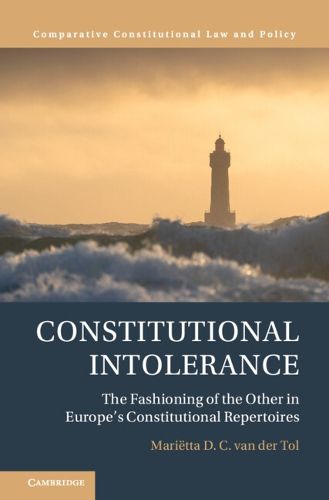Readings Newsletter
Become a Readings Member to make your shopping experience even easier.
Sign in or sign up for free!
You’re not far away from qualifying for FREE standard shipping within Australia
You’ve qualified for FREE standard shipping within Australia
The cart is loading…






Constitutional Intolerance offers a deeper reflection on intolerance in politics and society today, explaining why minorities face the contestation of their public visibility, and how the law could protect them. Van der Tol refers to historical practices of toleration, distilling from it the category of 'the other' to the political community, whose presence, representation, and visibility is not self-evident and is often subject to regulation. The book considers 'the other' in the context of modern constitutions, with reference to (ethno)religious, ethnic, and sexual groups. Theoretical chapters engage questions about the time and temporality of otherness, and their ambivalent relationship with (public) space. It offers examples from across the liberal-illiberal divide: France, the Netherlands, Hungary, and Poland. It highlights that vulnerability towards intolerance is inscribed in the structures of the law, and is not merely inherent to either liberalism or illiberalism, as is often inferred.
$9.00 standard shipping within Australia
FREE standard shipping within Australia for orders over $100.00
Express & International shipping calculated at checkout
Constitutional Intolerance offers a deeper reflection on intolerance in politics and society today, explaining why minorities face the contestation of their public visibility, and how the law could protect them. Van der Tol refers to historical practices of toleration, distilling from it the category of 'the other' to the political community, whose presence, representation, and visibility is not self-evident and is often subject to regulation. The book considers 'the other' in the context of modern constitutions, with reference to (ethno)religious, ethnic, and sexual groups. Theoretical chapters engage questions about the time and temporality of otherness, and their ambivalent relationship with (public) space. It offers examples from across the liberal-illiberal divide: France, the Netherlands, Hungary, and Poland. It highlights that vulnerability towards intolerance is inscribed in the structures of the law, and is not merely inherent to either liberalism or illiberalism, as is often inferred.